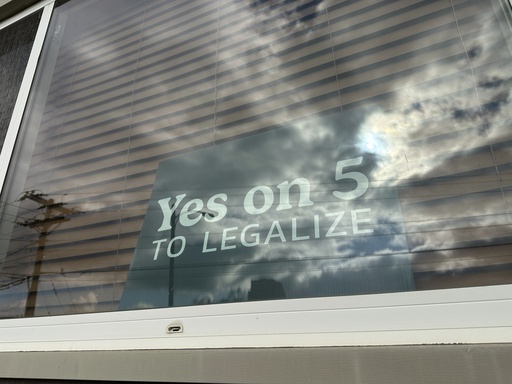BISMARCK, N.D. — In the upcoming general election, North Dakota voters will be presented with a significant proposal that seeks to abolish most local property taxes. If adopted, this measure could lead to notable cuts in state services as the state would need to supply an estimated $3.15 billion in replacement funding for local governments during each two-year budget cycle. Currently, the state is anticipating about $5 billion in general tax revenues for the ongoing two-year budget period.
Supporters of the measure advocate for the elimination of local property taxes, citing the growing frustration among voters concerning rising property taxes and the complexity of the current tax system. However, detractors argue that the proposal would necessitate substantial reductions in state services, creating potential challenges for residents.
Additionally, the ballot includes a proposal regarding the legalization of recreational marijuana use in North Dakota. Voters will decide whether to permit adults aged 21 and over to possess and use marijuana in private homes, as well as other designated private property. North Dakota joins a small group of states, including Florida and South Dakota, presenting recreational marijuana decisions to voters. So far, around two dozen states have legalized recreational marijuana, with Ohio being the most recent in 2023.
Previous attempts to legalize recreational marijuana faced rejection from North Dakota voters in 2018 and 2022, and the state’s Senate notably defeated two House-approved bills concerning legalization and taxation in 2021. The proposed measure would enforce various regulations regarding production and processing and would stipulate prohibited activities, such as using marijuana in public spaces or vehicles. Additionally, it would permit individuals to grow their own plants.
Conditions outlined in the proposal specify maximum limits for possession, including 1 ounce of dried cannabis, 4 grams of concentrate, and specific amounts of THC in edibles and other products. The proposal would also authorize up to seven marijuana manufacturing facilities and 18 dispensaries across the state.
Proponents of the marijuana measure argue that its implementation would allow law enforcement to redirect their limited resources toward addressing more pressing issues, such as the fentanyl crisis. Conversely, opponents express concerns over the negative physiological and social effects associated with marijuana use.
Further, voters will weigh in on whether to implement stricter requirements for citizen-driven constitutional initiatives. This topic has sparked ongoing discussions in the Legislature, driven by concerns that amending the state constitution is too straightforward. The proposal aims to limit initiatives to a single subject, ensure that only eligible voters may circulate and sign petitions, increase the number of required signatures for petition submissions, and mandate that such measures pass in both primary and general elections.
State Senator Janne Myrdal, a Republican who introduced the initiative, criticized the current constitution’s vulnerability to outside influences, asserting that individuals from states like California or New York could easily disrupt North Dakota’s legal framework. Myrdal, who’s known for her anti-abortion stance in the Legislature, refuted claims suggesting the measure is an effort to prevent an abortion rights initiative, especially in light of similar measures emerging across neighboring states after the reversal of Roe v. Wade.
In recent years, North Dakota lawmakers have expressed discontent with how ballot measures related to crime victim rights, ethics, and term limits have been funded and initiated. Opponents of the new restrictions argue that they compromise the principles of citizen democracy.
Two additional measures on the ballot involve proposed constitutional amendments to update archaic terminology related to disabilities within the state constitution, along with administrative adjustments concerning the state’s approximately $11 billion in oil tax savings.



